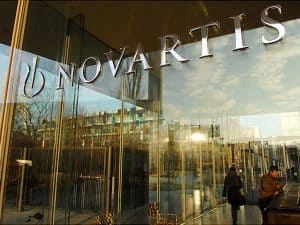Success Factors in Value Communication Design – Introduction
pharmafile | July 12, 2012 | Feature | Sales and Marketing | interactive apps, sales, value, value communications
This is the introductory article to the ‘Success Factors in Value Communication Design’ series; a set of articles that examine and explain the key factors in creating successful value communication for the clinical and economic benefits of pharmaceuticals, devices and diagnostics. Successful value communication leads to increased user engagement and commercial effectiveness. These recommendations have been drawn from the experiences of Gijs Hubben, Founder and CEO of BaseCase, who works with companies to build value communication apps for the presentation of economic and clinical evidence.
How do you communicate the value of medical technology?
Increasing pressures on healthcare budgets have made economic arguments a central part of the sales process of innovative technology. Manufacturers have started using spreadsheets to demonstrate economic and clinical value of their technology to a range of customers. These spreadsheets combine different data sources and assumptions to quantify, for a particular customer, what benefits the new technology will bring. Often the result is a mix of economic and clinical outcomes, based on ‘inputs’ that the customer provides.
Many companies have been disappointed with their initial attempts. When companies asked their key account managers to use such spreadsheets in customer interactions, they refused. Why? Because they didn’t see how it would help them. They were not comfortable presenting a complicated spreadsheet they didn’t fully understand. Can you blame them? No one wants to be confronted with a question they can’t answer and risk their credibility.
So, these spreadsheets are too complex. It’s not a surprising result, really. They are typically developed by scientists that have no relation to the mechanisms of sales and marketing. They may even frown upon the suggestion that their work will be used in a commercial context. Scientists generally aren’t aware of how to effectively communicate; some simply have no interest in it. However, scientists who do, become world famous for it – like the heroes of scientific communication – Richard Dawkins and Carl Sagan.
At BaseCase, we receive many supposedly ‘user-friendly’ spreadsheets that have been rejected by the commercial teams of pharmaceutical and device companies for being ‘too complex’. Frustration makes our clients wonder if their commercial staff should be communicating this type of information at all! But it would be dangerous to ignore a major shift towards more economic purchasing in the healthcare industry simply because of push back from the account managers. Its sink or swim: those companies that are most effective at communicating the value of their technology will succeed in the market place.
So, should we be getting worried, is there a solution to this problem? Of course there is! In fact, getting the commercial guys on board is not difficult. If you can produce an intuitive presentation that visualizes the value for money of a new product with just a few clicks – the account managers will not hesitate to adopt it.
Creating such a deliverable is the real challenge – success depends on the right technology to provide ‘painless’ access to such tools as well as on the way information is presented. Presenting quantitative information is an art as well as a science and it requires a multi-disciplinary mindset. In this series of articles, we outline some key success factors in value communication design based on our experience of (re)implementing dozens of value communication tools for pharma and devices companies over the past years.
Next article in the series: Success Factors in Value Communication Design – Start with a Key Message
Related Content

Exscientia buys Austrian cancer cell screening company for €50 million
UK-based AI pioneers Exscientia has announced the purchase of rival AI firm Allcyte for €50 …

Deloitte acquires Iperion Life Sciences Consultancy
Deloitte have announced the acquisition of Iperion Life Sciences Consultancy, a globally-operating firm working to …

Novartis CEO sets aside $700 million to settle bribery lawsuit
Vas Narasimhan, Novartis’ CEO, has set aside $700 million to settle a bribery lawsuit in …








